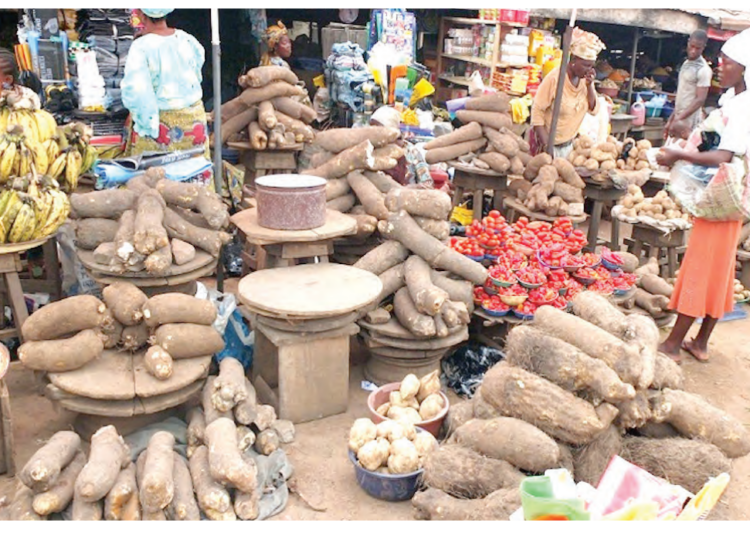As Nigeria grapples with a myriad of socio-economic and environmental challenges, a new report has sounded the alarm on an impending food crisis that could push millions into severe hunger and malnutrition.
According to the February–March edition of the Cadre Harmonise (CH) analysis, an estimated 30.6 million Nigerians, including 150,978 internally displaced persons (IDPs) across 26 states and the Federal Capital Territory (FCT), are projected to face acute food and nutrition insecurity between June and August 2025.
While this figure represents a slight decline from the 33.1 million forecasted in November 2024, the situation remains dire, demanding immediate and coordinated action from all stakeholders.
The report, conducted by the Federal Ministry of Agriculture and Food Security in collaboration with the Food and Agriculture Organisation of the United Nations (FAO) and other partners, paints a grim picture of the state of food security in Nigeria.
Despite recent declines in food and commodity prices, the looming lean season threatens to exacerbate food consumption deficits, particularly in regions already reeling from the triple burden of conflict, climate shocks, and the lingering effects of macroeconomic reforms.
The most affected areas include Sokoto, Zamfara, Borno, Yobe, and Katsina states, where livelihoods have been severely disrupted, leaving millions vulnerable to hunger and malnutrition.
In our opinion, the food crisis in Nigeria is not an isolated phenomenon but the culmination of systemic failures and external shocks. At its core are three major drivers: conflict and insecurity, climatic shocks, and economic instability.
The protracted insurgency in the North-East, banditry in the North-West, and communal clashes in other regions have displaced millions, destroyed farmlands, and disrupted agricultural activities. Farmers are often forced to abandon their fields, leading to reduced food production and supply chain disruptions. The result is a vicious cycle of food scarcity and rising prices, further exacerbating the vulnerability of affected communities.
Nigeria’s agricultural sector remains heavily reliant on rain-fed farming, making it highly susceptible to climate variability. Prolonged droughts, erratic rainfall patterns, and flooding have devastated crops and livestock, particularly in the northern regions. These climatic shocks not only reduce food availability but also erode the resilience of farming households, pushing them deeper into poverty.
The macroeconomic reforms implemented by the federal government in 2024, while necessary for long-term economic stability, have had short-term adverse effects on food security. Rising inflation, currency devaluation, and increased fuel prices have driven up the cost of food production and transportation, making basic food items unaffordable for many households.
The economic hardship has also limited access to essential services, including healthcare and education, further compounding the vulnerability of affected populations.
The FAO, alongside other stakeholders such as the World Food Programme (WFP), UNICEF, Save the Children, and Mercy Corps, has emphasised the importance of early warning systems and sustained humanitarian activities in preventing a full-blown food crisis.
At the CH results presentation workshop in Abuja, FAO Country Representative Kouacou Dominique Koffy commended the federal government and CH stakeholders for their commitment to food security monitoring.
However, he also called on state governments and development partners to mobilize resources for full national coverage in the next assessment scheduled for October 2025. “Without sufficient data, effective planning and response become impossible,” he stressed.
In the considered opinion of this newspaper, we believe that this food crisis demand a coordinated national response that transcends partisan politics and bureaucratic silos. The federal government must declare food insecurity a national emergency and establish a high-powered task force comprising relevant ministries, security agencies, humanitarian organisations, and private sector stakeholders to develop and implement a comprehensive response plan.
States must complement federal efforts by investing in local food production, storage facilities, and distribution networks. The private sector, particularly agribusinesses, has a crucial role to play in scaling up production and ensuring that food reaches vulnerable communities at affordable prices.
International partners, including the FAO, WFP, UNICEF, Save the Children, and Mercy Corps, must continue their humanitarian activities in affected areas while supporting government efforts to build long-term resilience. Their call for early warning systems is particularly important in preventing full-blown food crises.
As a nation, we cannot claim to be on the path to prosperity when millions of our citizens go to bed hungry. The food crisis is not just a humanitarian challenge; it is a national security threat that could undermine social cohesion and political stability if left unaddressed. The time for platitudes and half-measures is over. What Nigeria needs now is decisive leadership that places food security at the center of our national agenda.
The looming food crisis is a test of our collective resolve as a nation. How we respond to this challenge will define not just the immediate fate of 30.6 million vulnerable Nigerians but also our long-term prospects as a food-secure and prosperous nation. We must not fail this test.





